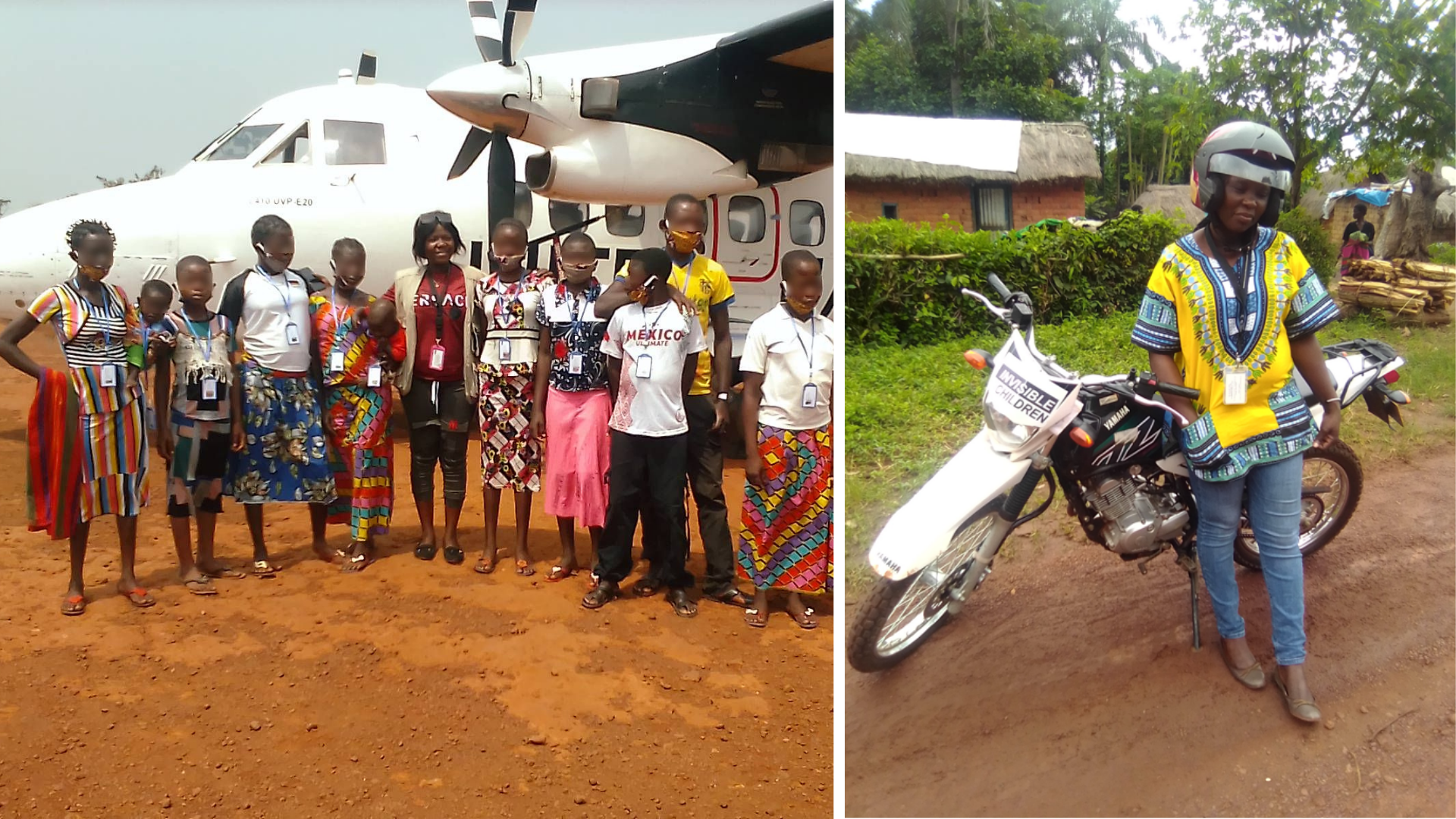In honor of International Women’s Day, we spoke with Bénédicte Fizane-Zara and Marie Joséphat Grengbo, two women on our team in the Central African Republic (CAR). We asked Bénédicte and Marie Joséphat about their work in communities impacted by violence and the role they play in supporting female peacebuilders.

First, tell us about yourselves and what roles you play on the Invisible Children team in CAR.
Bénédicte: I come from a large family here in CAR. I am the third of seven children and am a mother myself of a five-year-old daughter. I am a protection assistant at Invisible Children, so I am responsible for coordinating care for former captives of the Lord’s Resistance Army (LRA) and helping them reunite with their families.
Marie Joséphat: I was born in Bangui, the capital of CAR and have a young son. I am a clinical psychologist for Invisible Children at one of our offices in eastern CAR and provide counseling and other support to individuals experiencing symptoms of trauma. I also help train local volunteers and health center staff in the area to understand and recognize trauma so that they can provide more support to members of their community who have experienced the effects of violence.
You both play very important roles at Invisible Children. How do you see your work impacting the lives of women in CAR?
Marie Joséphat: As a woman and a psychologist, I’m able to provide advice and guidance to all of my patients and the volunteers I work with, but especially to those who are women. Women are an important part of peacebuilding and healing, so I’m glad to work for an organization that recognizes the importance of including women in our programs and on our team.
Bénédicte: Along with providing direct support and care to women and girls who escape LRA captivity, I also participate in training sessions for local volunteers who host LRA escapees and members of the Invisible Children-supported peace committees. During these training sessions, I am able to connect with women in the community and we help each other find answers to everyday challenges.
Why is it so important for women to participate in peacebuilding and recovery work in areas impacted by violent conflict? How does Invisible Children include women in peacebuilding efforts?
Bénédicte: Women are often some of the most vulnerable members of a community and often suffer the most during violent conflict. Involving women in peacebuilding not only ensures that their needs are met and concerns heard, it also guarantees that peacebuilding efforts have an impact on the most vulnerable. Through ensuring that women have active roles in local peace committees and are equally involved in mediating local conflicts, Invisible Children takes important steps to ensure that women are involved in decision-making and peacebuilding which helps women and the rest of their community understand the role that women have in leading their community toward long-lasting peace.
Finally, do you have any advice for young women on International Women’s Day?
Marie Joséphat: The advice I have to give to women around the world is that, no matter what challenges you may be going through, never give up. Women have an important role in the success of our communities and it is not only men who can and should occupy positions of responsibility. A woman’s life does not depend on men’s if and only if we become aware of our bright future.
Bénédicte: My advice is also to encourage young women to continue the fight for equality. Much has been done and continues to be done toward the goal of equal rights, but the fight is not over.
Research shows that when women have an active role in peacebuilding peace is more durable. That’s why engaging and supporting women is essential to Invisible Children’s work to end violent conflict and foster thriving ecosystems alongside vulnerable communities in central Africa.
On International Women’s Day and every day we celebrate the leadership and commitment to peacebuilding of women like Bénédicte and Marie Joséphat. At Invisible Children, we know that the inclusion, participation, and leadership of women in peacebuilding drives positive change for their communities, yet they continue to be underrepresented in many areas of public life and decision-making. With that knowledge, we also remain committed to equipping, empowering, and supporting women at work in their communities as we strive to build a world in which all people and the planet thrive together.
Learn more about our gender-inclusive approach to peace-building

Think people should hear about this?